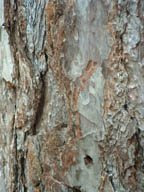sketchbooks a personal view :)
from the medieval tomb of Roger LeStrange in Old Hunstanton
I've just been reading Katherine's post for today at
http://makingamark.blogspot.com/2007/11/how-to-keep-artists-sketchbook.html
She's discussing some interesting books on keeping sketchbooks - well, as you know if you've been reading here, I love sketchbooks :) I love using them and looking through other people's - it's an insight into the way they think about their work, their process, ideas, whether they work in linked series and a chance to see all those things sketched for the sheer interest and never intended to become 'finished' paintings.
My sketchbooks are where I think ideas through, draw things simply because they interest me, make notes on artists that I should look up, stick bits in, preparatory work for canvasses, lists of ideas or materials or notes on work I've seen, experiments with mixes of media ..... anything and everything. Mine are messy and mixed, not intended to be show pieces, though a friend produces immaculate books of watercolour studies on his travels that are complete and tidy journals - that isn't the the way I think.
http://sitekreator.com/viviensketches/main_page.html you can see lots of pages from them here.
I'll work in them in any medium. The rubbings above, done whilst visiting a wonderful ancient Norfolk church on a horrible rainy day were a spur of the moment thing. It was horrible outside, the tomb was fascinating and beautifully engraved with the medieval knight in his armour. I decided to see if the thick paper of my sketchbook would work to take a rubbing - it did :) not as well as a finer paper but I was pretty happy with it. I'd never done a rubbing before and I know they are usually done with wax and a fine paper - all I had was a thick cartridge paper sketchbook and pencil! The friend I was with and I spent a happy afternoon out of the rain doing a series of these and it was fascinating to see the artist's work coming through onto the paper - from so many hundreds of years ago.
The next page of my book may be a pencil sketch or a watercolour, pastel, coloured pencil or oil. Below is a very very rough sketch of a wild, cold, wet day in the same book as the rubbings above.
quick oil sketch on a wild rainy day
the shadow on the left is from the joining page - it's in a tiny book and was done very very quickly with a palette knife - well more correctly a painting knife. It was just a record of the colours and mood of the day - and the reason we were visiting churches and keeping out of the rain :)I rarely use small books as I feel cramped by them - A3s are my favourite but are a bit big to carry unless I'm on a sketching day with fellow painters.
I like the surface of moleskines for pencil and coloured pencil but wish they would make a larger size - even the one they call large is one I'd call small!
One of the artists whose sketches I really admire is John Blockley. His drawings were so free and so telling. He sketched a lot in Snowdonia, around Mount Snowdon. He caught the way the trees were twisted by prevailing winds and the stone built farms nestled into the countryside amongst the rocks and steep mountainsides. These led on to wonderful abstracted canvasses. I can't find a link to any drawings :(
Another artist who sketches, in a very different and more illustrational way, is David Gentleman. One book of his is a trip around the entire British Coastline, sketching everywhere - from wild and lonely places to the docks and oil refineries. The drawing is the key element in his work and colour, though used well, is of secondary importance to him. http://www.biffvernon.freeserve.co.uk/steven2.jpg
Sue Lewington works in a similar way with pen and watercolour, but I love her use of colour. Her work centres largely around Cornwall and the Scillies. http://www.tresco.co.uk/Library/Gallery/exhibitions/sue_lewington/p1a.jpg
You can see books by all of these on Amazon
http://sitekreator.com/viviensketches/recent_stuff.html recently uploaded sketches of mine are here
do you keep a sketchbook? and how do you use yours?
.






Comments
Thank you for such an informative post, it was most interesting. Your sketchbook pages are very sensitive, I like the way you work.
I do keep sketch books , but not as much as I'd like to. Some are for exploring design ideas and others I use out and about. I still find it hard to use a sketch book in public, even though I've been doing it on and off for years, and usually make excuses and use the camera instead!!
check out this artist's sketchbooks: http://craftmonkeys.typepad.com/
I love her work.
and thanks Bridgette - I love the sketches on the craftmonkeys link and I'm going to have a really good look at my leisure and enjoy :)
I enjoy following the work on both your blogs :)
it's funny you used the word 'playing' as I often call experimental sketches 'playing' with ideas :) - playing is good :)
Oil paints work really well in sketchbooks I find and you can get down an impression of the scene so much faster with the oils - and change it as the light changes if you want, like adding a flash of light across a field as the sun breaks through a gap in the clouds.